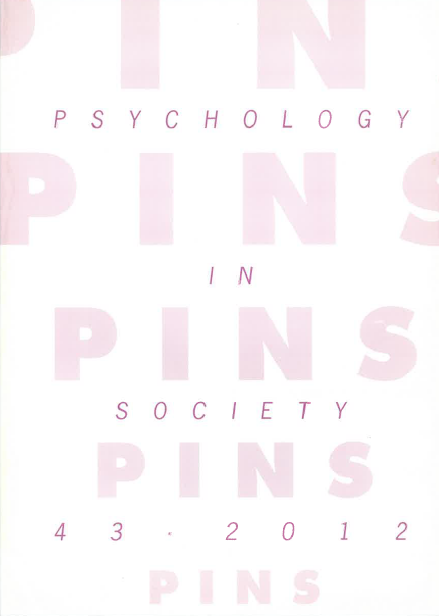APARTHEID’S LOST ATTACHMENTS (2): MELANCHOLIC LOSS AND SYMBOLIC IDENTIFICATION
DOI:
https://doi.org/10.17159//2309-8708/2012/n43a4Abstract
This paper, the second of two focussed on the libidinal attachments of white children to black domestic workers in narratives contributed to the Apartheid Archive Project (AAP), considers the applicability of the concept of social melancholia in the case of such “inter-racial” attachments. The paper questions both the psychoanalytic accuracy, and the psychic and political legitimacy of such an explanation (that is, the prospect of an “inter-racial” melancholic attachment of white subjects to black care-takers). By contrast to the political notion of ungrievable melancholic losses popularized by Judith Butler’s work, this paper develops a theory of compensatory symbolic identifications. Such a theory explains the apparent refusal of identification which white subjects exhibit towards black caretakers and it throws into perspective an important conceptual distinction regards loss. On the one hand there is the psychotic mechanism of melancholic attachment, which expresses absolute fidelity to a lost object, even to the point of self-destructive suffering. On the other, there is the neurotic mechanism of
compensatory identification, in which the original object is jettisoned and a substitution found, such that a broader horizon of symbolic and ideological identification is enabled.
Downloads
Downloads
Published
How to Cite
Issue
Section
License
This journal is an open access journal, and the authors' and journal should be properly acknowledged, when works are cited.
Authors may use the publishers version for teaching purposes, in books, theses, dissertations, conferences and conference papers.
A copy of the authors’ publishers version may also be hosted on the following websites:
- Non-commercial personal homepage or blog.
- Institutional webpage.
- Authors Institutional Repository.
The following notice should accompany such a posting on the website: “This is an electronic version of an article published in PINS, Volume XXX, number XXX, pages XXX–XXX”, DOI. Authors should also supply a hyperlink to the original paper or indicate where the original paper (http://www.journals.ac.za/index.php/pins) may be found.
Authors publishers version, affiliated with the Stellenbosch University will be automatically deposited in the University’s’ Institutional Repository SUNScholar.
Articles as a whole, may not be re-published with another journal.
The copyright of the article(s) lies with the author(s).
The copyright of the journal lies with PINS-psychology in Society.
The following license applies:
Attribution CC BY-NC-ND 4.0 - https://creativecommons.org/licenses/by-nc-nd/4.0/

